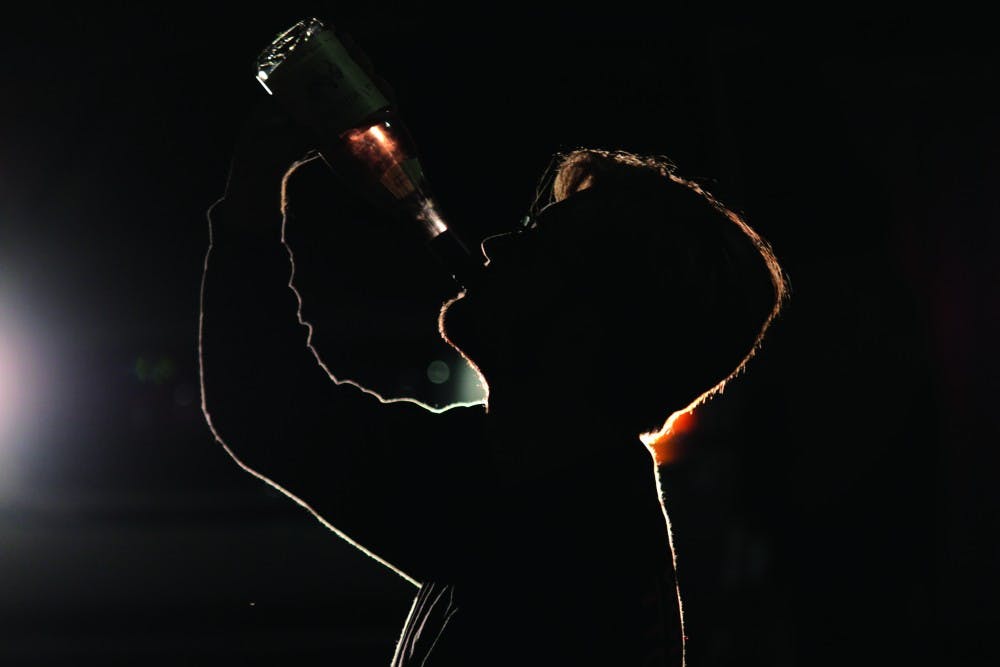Senior Morgan Vickers spent the night of the 2017 national championship like most other UNC students: She watched the game, rushed Franklin Street and took pictures with her friends. But unlike the intoxicated crowd around her, Vickers went home once Franklin Street began to clear, choosing to walk away from the party scene developing after the victory.
Vickers has been sober for two years. She developed an alcohol addiction when she came to college and started recovery during her sophomore year.
Vickers said she didn’t think her alcohol habits were a problem for a long time, because many college students around her were also displaying unhealthy drinking behavior.
“One of the most difficult parts about coming to terms with being a person with an addiction was that everyone around me was drinking, and a lot of people around me were blacking out or were falling at parties or were doing things that seemed sort of normal substance abuse behaviors,” Vickers said.
Frank Allison, the UNC Collegiate Recovery Initiatives program coordinator, said out of the 70 percent of UNC students who drink, about 40 percent of them binge drink. Out of that group, about 8 to 10 percent of those students may have alcohol use disorder.
AUD is the clinical term for having an alcohol addiction, defined by the National Institute on Alcohol Abuse and Alcoholism as a “chronic relapsing brain disease characterized by compulsive alcohol use, loss of control over alcohol intake and a negative emotional state when not using.”
Allison said many college students participate in unhealthy drinking behaviors because of factors like newfound independence from parents, academic stress and social anxiety. Large universities with NCAA Division I sports and active Greek life, such as UNC, also tend to have higher drinking rates than other colleges.
Allison leads the Carolina Recovery Program, an organization under Student Wellness that provides support for students battling substance use disorders or who are in recovery. He also helps students who must medically withdraw and enter treatment programs.
The organization offers regular meetings, substance-free social events and emotional support for its members, which number about 40 to 50 people. Allison said the program “meets students where they’re at,” whether that means they have an addiction, are concerned they could develop one or are in recovery.



